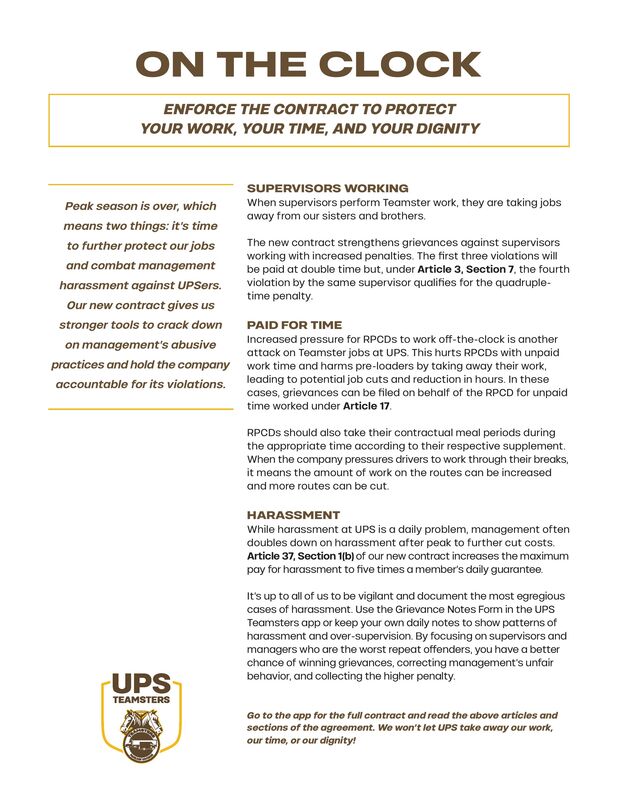News from 638 & Beyond |
Q: Why should I work off the clock before my start time if it means I'll get my reoute done faster and easier?
A: Because UPS is not paying you for that extra work. This not only hurts your paycheck but allows UPS to cut jobs and can lead to layoffs. By coming in early and working off the clock, you are setting false and unfair standards for your route and enabling UPS to cut bid routes. Remember, every extra second or minute saved by you not having to look for a package in your truck is money in UPS’s pocket, not yours.
Q: So if i work before my start time as a driver, how does that hurt my coworkers?
A: Working off the clock hurts your coworkers on preload because they are losing that time. As Teamsters, we should not be taking other union members’ work. Many UPS Teamsters sacrificed in the past by refusing to work off the clock so that we could have the rights we have today.
Q: why should I take my breaks?
A: Whether you work inside or as a driver, working though breaks undermines our supplement and the overall contract. Drivers who use their break time to sort their truck or pre-record stops, for example, make it easier for the company to increase the amount of work on routes which can lead to more routes being cut.
Q: how is starting ahead of my shift as a part-timer harmful?
A: Anything you do to set up your work area – from gathering load bags to setting up scanners – should be done on the clock. When you perform this work off the clock, you are only doing UPS a favor (for free) and potentially inviting more violations of your three-and-a-half-hour guarantee under Article 22.
How much does working off the clock really affect my paycheck?
A: Let’s do the math. If you’re an RPCD and you start 15 minutes before your shift five days a week, that’s more than $4,300 a year in overtime out of your pocket that you are giving to the company. If you’re a part-timer with, say, eight years of seniority, starting 15 minutes early off the clock five days a week amounts to more than $2,000 of free overtime labor per year that you’re giving up to the company.


 RSS Feed
RSS Feed